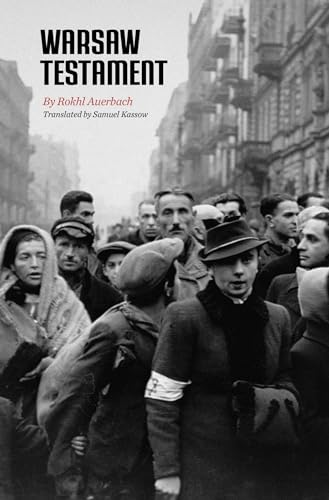
Warsaw Testament
by Rachel Auerbach
Popularity
4.65 / 5
* A book's popularity is determined by how it compares to all other books on this website.
Where to buy?
Buy from Amazon* If you buy this book through the link above, we may receive a small commission at no extra cost to you.
Warsaw Testament by Rachel Auerbach
Details
Biography:
No
Published Date:
2024
ISBN13:
9798988677383
Description
Main Themes and Topics
Warsaw Testament by Rachel Auerbach delves into the harrowing realities of the Warsaw Ghetto during the Nazi occupation. Auerbach, a member of the Oyneg Shabes archive group, offers a deeply personal and insightful account of the life, culture, and eventual destruction of prewar Jewish Warsaw. The book discusses themes of survival, resilience, and the importance of preserving history through documentation. Auerbach's involvement in running a soup kitchen highlights the theme of community support amidst desperate circumstances. The memoir not only serves as a historical document but also as a tribute to the enduring spirit of the Jewish people.
Writing Style and Tone
Auerbach's writing is both poignant and direct, capturing the intensity of life in the Warsaw Ghetto with an unflinching gaze. Her memoir is rich in detail and offers a narrative that is both personal and universal. The tone is one of solemn remembrance, with Auerbach weaving her firsthand experiences with broader historical contexts. Her style underscores the urgency of memory and the need to bear witness to the atrocities witnessed, ensuring that the voices of those lost are not forgotten.
Brief Summary
Warsaw Testament serves as an essential document from one of the few surviving members of the Oyneg Shabes archive. Rachel Auerbach recounts her experiences during the German occupation of Poland, focusing on her time in the Warsaw Ghetto. Tasked with managing a soup kitchen by Emanuel Ringelblum, Auerbach details the daily struggles faced by the Jewish community, as well as her involvement in the secret archive project. The memoir vividly depicts the vibrant Yiddish literary and artistic community of prewar Warsaw and its subsequent obliteration by the Nazis. Through her detailed recollection, Auerbach preserves the voices of those who perished and reflects on the resilience of those who fought to maintain their humanity and culture in the face of unimaginable suffering.









